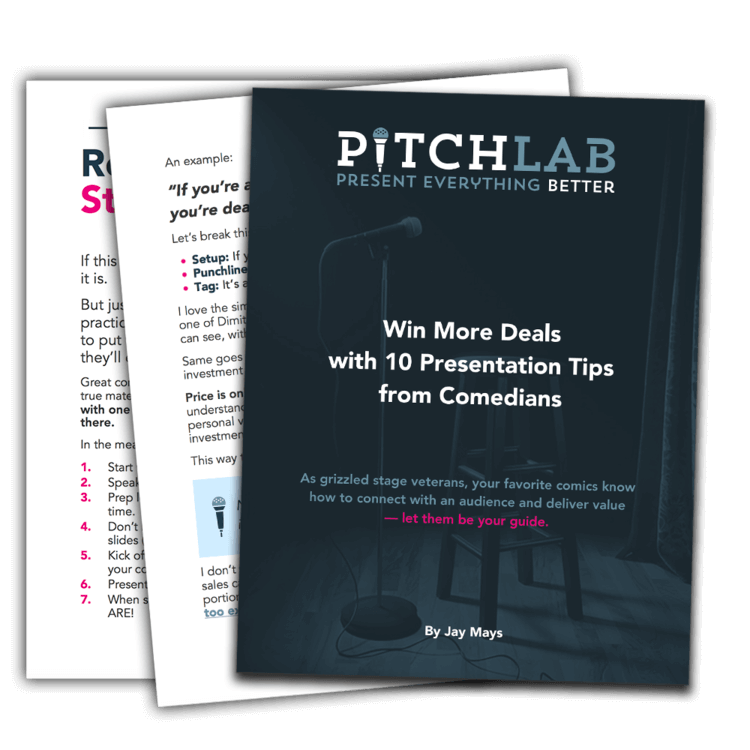How to Manage Your Stage Fright like a Stand-Up Comedian
/Looking back, I wish I would have gotten onstage more without a buzz. Stand-up comedy has always been a terrifying proposition. Like skydiving-level scary (without the risk of physical harm, of course).
It’s just you up there. Alone. Blinding spotlight in your eyes. No ensemble to rely on. Folks in the crowd betting their evening on your ability to entertain them.
So instead of managing these complicated emotions, these butterflies if you will, I decided to kill them. With beer and vodka.
To its credit, alcohol did the job to take the edge off. But looking back, I did myself a huge disservice. Instead of working on my stage fright multiple times a week, I took the easy way out and numbed my feelings.
It’s no wonder that when I started running Pitch Lab workshops years ago I had to practically start from scratch to build up the skills of managing my pre-show anxiety. I hadn’t made much progress during the entire decade I was performing in bars and clubs.
Here’s the thing I’ve learned about stage fright. Everyone gets it. If not always, at the very least from time to time.
And if anyone ever tells you they never get stage fright, they’re lying. Put that person in the right context, where the stakes are high enough, and they will get stage fright.
We get stage fright because we want to do well and be accepted. We get stage fright because we care.
I’ve read and heard a ton of strategies for beating stage fright. Some work. Unfortunately, most don’t.
The most successful strategy for me personally has been reframing the anxiety as excitement:
It’s not about getting rid of the butterflies, it’s about getting the butterflies to fly in formation.
Accelerated heart rate, rapid breathing, feeling faint, flush face, upset stomach, trembling hands. Name a symptom, I’ve had it.
The best way to make the fear-to-excitement transformation is to say these three words over and over:
I AM EXCITED. I AM EXCITED. I AM EXCITED.
This changes your perspective about stage fright. Instead of a threat, this is an opportunity.
The wrong thing to do before your presentation is to try and calm down, though. These symptoms of nervousness and anxiety are actually more closely related to excitement than being calm.
Caution: from a physical standpoint, you’re not going to feel much different at first. Your worst symptoms will remain.
However, what science shows us is that reframing performance anxiety as excitement leads to feeling more in control—and ultimately a better performance, whether it’s stand-up comedy, speaking in front of your team, or pitching your dream client.
Plus, a moderate amount of anxiety before you present is a good thing. It will help keep your energy high and your delivery energetic.
I’m to the point now in my career where I’m more concerned when I’m not nervous before a workshop or gig because I’m going to come off as low-energy.
Of course, it’s also always worth asking yourself, am I truly prepared for this presentation? There’s a difference between anxiety because you want to present well— you want to win—and anxiety because you’re unprepared.
Preparation is key to a great presentation and coming off confident. As we explored in Keynote Karaoke, that doesn’t mean memorizing word for word, but it does mean knowing your stuff.
Nothing beats repetition. Get out there and practice. Once you’ve got your pitch down, reframe your remaining anxiety as excitement.

